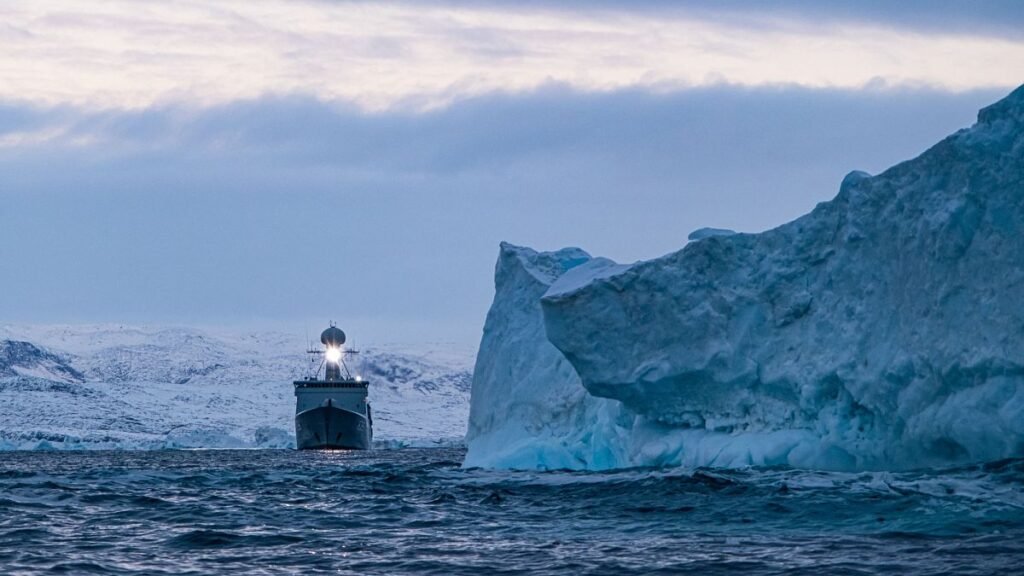Washington’s decision to circumvent ongoing international talks and unilaterally open up international waters to US-backed mining companies has stoked fears of an environmentally ruinous 21st-century gold rush, and the EU is among many voices now questioning the legality of the move.
Trump’s executive order came just weeks after the UN’s International Seabed Authority (ISA) closed its 30th session in Jamaica without finalising a rule book on the safe and sustainable exploitation of mineral resources, thereby prolonging a global moratorium on seabed mining.
The European Commission told Euronews on Monday that it “deeply regrets” the US president’s executive order that “circumvents” the negotiations in the ISA, which was established under the United Nations Convention on the Law of the Sea (UNCLOS).
A spokesperson for the EU executive said the 1982 convention “sets out the legal framework within which all activities in the ocean and seas must be carried out” and “reflects a balance allowing for the accommodation of various interests of individual states while protecting the common interests of the international community and humankind as a whole”.
The US never ratified the UNCLOS, however, with President Ronald Reagan sceptical at its inception and subsequent attempts to join the substantial majority of countries – now 168 plus the EU – that have signed the treaty consistently blocked by a minority of Republican lawmakers in the US Senate.
But the EU executive appears to share the widely held view that the convention has come to represent basic international law built on decades of accepted norms and practice, and therefore applies to the US by legal convention.
“It is crucial to recall that its provisions reflect customary international law and are thus binding on all states irrespective of whether they have acceded to the Convention or not,” the EU executive said in an emailed statement.
“By establishing the legal order for seas and oceans, the Convention contributes to sustainable development as well as to the peace, security, cooperation and friendly relations among all nations,” the Commission said.
World’s ‘first pirate mining operation’
Douglas McCauley, a professor at UC Santa Barbara and adjunct professor at the University of California, Berkeley, said Trump’s move was not only illegal, but destined to backfire.
“The US has stepped forward to become the first pirate mining operation in international waters,” McCauley said. “With rules, we could have controlled the minerals that China or any country or person would take from this part of the ocean,” the marine biologist said.
Duncan Currie, a legal and policy advisor at the US-based Deep Sea Conservation Coalition said the unilateral move by Washington was a clear breach of international law.
“It upends more than 40 years of legal precedent in the UN Convention on the Law of the Sea, threatens to destabilise ocean governance globally and is an insult to the peoples and countries across the Pacific that this move will most impact.”
China has taken the same line, with foreign ministry spokesperson Guo Jiakun telling reporters the day after the order was signed that “the exploration and exploitation of minerals in the international seabed area must be carried out in accordance with the United Nations Convention on the Law of the Sea and under the framework of the International Seabed Authority”.
Customary international law
Trump’s order may mark a spike in global tensions over divvying up what remains of the global commons, but it was not the start.
Under the Biden administration, the US concluded a two-decade oceanographic research project – billed as the largest ever – to delineate almost a million square kilometres of ‘extended continental shelf’ areas beyond its 200-nautical mile exclusive economic zone, where it claimed sole rights to mineral resources.
The US claim on that area, staked in December 2023 and to which Trump refers indirectly in his executive order, was in principle based on complex criteria set out in the UNCLOS and the “customary international law” stemming from it that the president is now accused of looking to circumvent.
Despite China citing this legal convention in its criticism of Trump’s executive order, it had earlier – along with Russia and others – questioned America’s claim on its extended continental shelf on the grounds that Washington never ratified the UNCLOS.
Beijing’s influence within the ISA – and Washington’s lack of it without – is just one reason given in the most recent (failed) bipartisan effort persuade Congress to ratify.
Read the full article here
